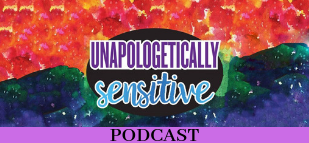Emotional Intelligence in Relationships: Honoring Neurodivergent Needs and Communication Styles
How do you center yourself in relationships when you’re being told you’re difficult to be around, or people stop communicating with you? How do you navigate ambiguous communication? I go on a rant because I was feeling frustrated. I talk about neurodivergence and my experience being autistic. I also explore the following: Is Self-Diagnosis for autism valid? What are misconceptions about autism? What is hurtful to say to someone who is autistic?
HIGHLIGHTS
Common misconceptions about autism
- Autism is often portrayed as a “male” condition, with diagnostic criteria based on white boys who externalize. –
- Girls and women with autism may not fit the stereotypical image of someone with the condition, as they may be socialized to be polite and take care of others’ needs and feelings. –
- There is a misconception that self-diagnosis is not valid or reliable, but it is. For those who self-diagnose, it can be very empowering.
- Some people believe that autism is a “disease” or something that needs to be “cured,” I believe I AM autistic. It’s how I’m wired. I don’t have autism—there’s nothing wrong with me.–
- There is a stereotype that all autistic individuals lack empathy or emotional intelligence, but this is not true and is a harmful stereotype. –
- Many people assume that autistic individuals are not interested in socializing or making friends, but this is not always the case and is another harmful stereotype.
What are harmful hurtful things one can say to someone who discloses they’re autistic
- “You don’t look autistic,” or “You don’t act autistic.” This statement invalidates the person’s experiences and reinforces stereotypes about how autism should appear. It also indicates that the person really has no idea what autism looks like.
- “Just try harder to fit in.” This disregards the challenges that autistic individuals face in social situations and implies that they are not making enough effort.
- “You’re overreacting.” Dismissing or minimizing the person’s sensory sensitivities or emotional responses can be invalidating and hurtful.
- “You’re being too sensitive.” This statement undermines the person’s experiences and feelings, disregarding their unique sensory experiences and emotional responses.
- “You should act more normal.” Pressuring someone to conform to neurotypical standards disregards their authentic self and can lead to masking or suppressing their true identity.
- “You’re not trying hard enough to communicate.” This places blame on the autistic individual for communication difficulties, disregarding the fact that communication styles may differ for autistic individuals. Allistics (non autistics) set the “norms” for communication, which is also invalidating for how autistic brains are wired.
- “You’re just seeking attention.” Accusing someone of seeking attention can be dismissive and hurtful. Invalidating the challenges autistics experience and blaming the autistic is ableist.
- “You’re not capable of doing that.” Underestimating someone’s abilities based on their autism can be demeaning and limit their opportunities for growth and success.
- “You need to be fixed.” Implying that autism is a flaw or something that needs to be cured can be deeply hurtful and perpetuates harmful ableist attitudes.
- “You’re not normal.” Labeling someone as “abnormal” or “not normal” can be stigmatizing and contribute to feelings of isolation and low self-worth. It is important to approach conversations with empathy, respect, and understanding, focusing on acceptance and supporting the individual’s unique needs and experiences.
Neurodiversity Explained
- Neurodiversity is the concept that neurological differences are natural variations in human neurology, rather than disorders or deficits. –
- This perspective recognizes that every individual has unique strengths and challenges, and that these differences should be celebrated and accommodated rather than pathologized or stigmatized. –
- In the context of autism, the idea that autism is a “disease” or something that needs to be “cured.” –
- It’s important to understand and honor how autistic individuals are wired, rather than trying to make them conform to neurotypical standards. –
- There is a lack of diversity in the diagnostic criteria for autism, which are often based on white boys who externalize. – This can lead to a narrow understanding of what autism looks like and can result in many autistic individuals, particularly girls and women, being overlooked or misdiagnosed. –
- The paradigm needs to be changed, so we are embracing neurodiversity and celebrating differences, finding one’s own community of like-minded individuals, and rejecting the notion that there is a “normal” or “correct” way to be. –
- By understanding and respecting neurodiversity, we can create a more inclusive and accepting society that values and accommodates all individuals, regardless of their neurological differences.
PODCAST HOST
Patricia was a Licensed Clinical Social Worker, but is now exclusively providing coaching. She knows what it’s like to feel like an outcast, misfit, and truthteller. Learning about the trait of being a Highly Sensitive Person (HSP), then learning she is autistic helped Patricia rewrite her history with a deeper understanding, appreciation, and a sense of self-compassion. She created the podcast Unapologetically Sensitive to help other neurodivergent folks know that they aren’t alone, and that having a brain that is wired differently comes with amazing gifts, and some challenges. Patricia works online globally working individually with clients, therapists, and she teaches Online Courses for HSPs that focus on understanding what it means to be an HSP, self-care, self-compassion, boundaries, perfectionism, mindfulness, communication, and creating a lifestyle that honors you
LINKS
HSP Online Course–https://unapologeticallysensitive.com/hsp-online-groups/
Receive the top 10 most downloaded episodes of the podcast– https://www.subscribepage.com/e6z6e6
Sign up for the Newsletter– https://www.subscribepage.com/y0l7d4
To write a review in itunes:
- click on this link https://itunes.apple.com/us/podcast/unapologetically-sensitive/id1440433481?mt=2
- select “listen on Apple Podcasts”
- chose “open in itunes”
- choose “ratings and reviews”
- click to rate the number of starts
- click “write a review”
Website–www.unapologeticallysensitive.com
Facebook– https://www.facebook.com/Unapologetically-Sensitive-2296688923985657/
Closed/Private Facebook group Unapologetically Sensitive– https://www.facebook.com/groups/2099705880047619/
Instagram– https://www.instagram.com/unapologeticallysensitive/
Youtube– https://www.youtube.com/channel/UCOE6fodj7RBdO3Iw0NrAllg/videos?view_as=subscriber
Tik Tok–https://www.tiktok.com/@unapologeticallysensitiv
e-mail– unapologeticallysensitive@gmail.com
Show hashtag–#unapologeticallysensitive
Music– Gravel Dance by Andy Robinson www.andyrobinson.com

